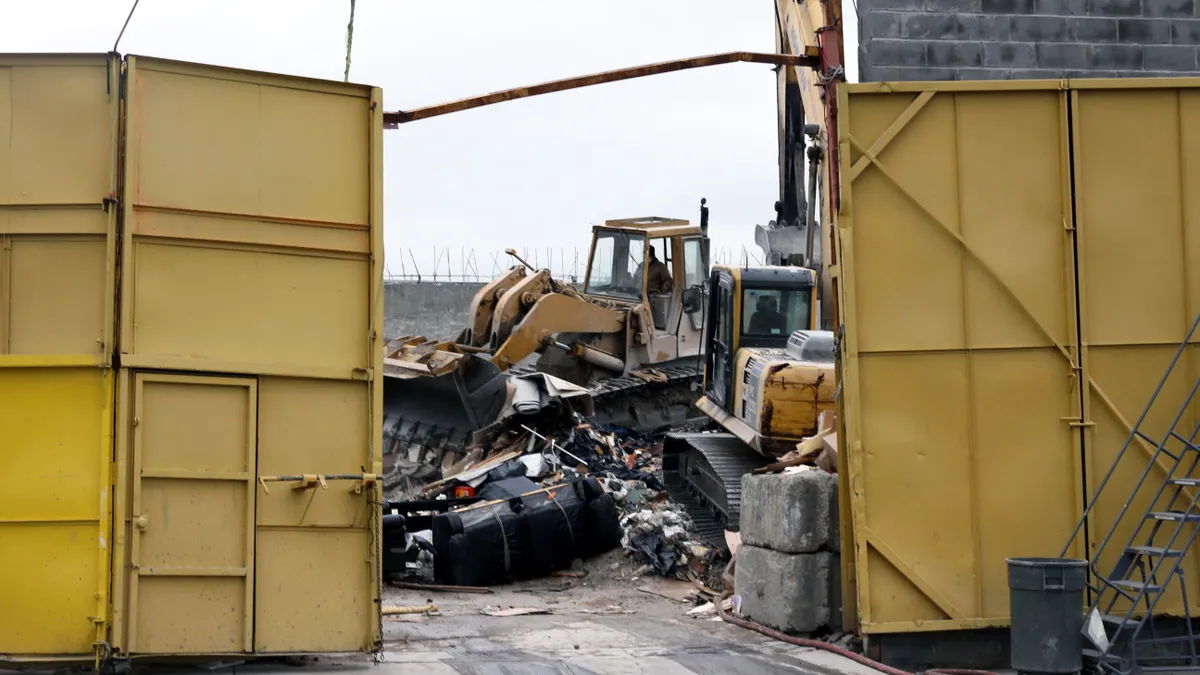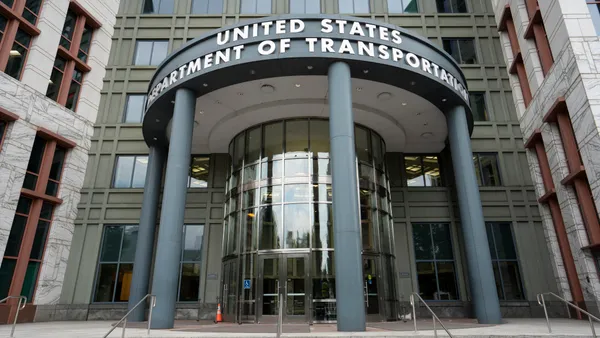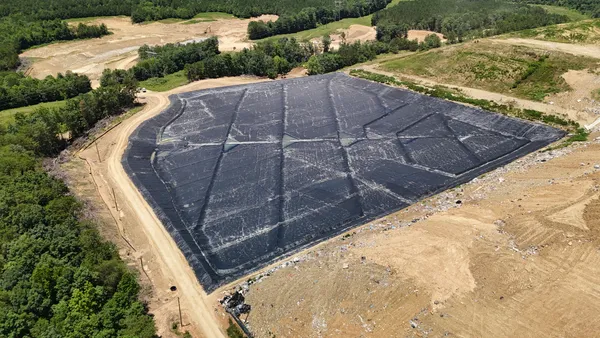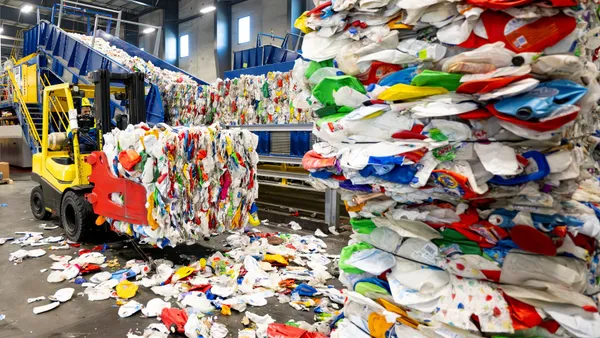Dive Brief:
- New York Mayor Bill de Blasio endorsed Intro. 495-B, a bill to reduce private transfer station capacity, at an Aug. 30 town hall event in one of the neighborhoods with the highest concentration of such facilities. "It's an unbelievable fact how unfair the history is in terms of garbage coming into this district," said de Blasio. "That is not acceptable and that has to change."
- The news, first reported by Politico, was delivered alongside bill co-sponsor Council Member Antonio Reynoso. Intro. 495-B would direct the Department of Sanitation (DSNY) commissioner to reduce permitted capacity for private transfer stations 50% in the northern Brooklyn area that Reynoso represents, and one in southeast Queens, by October 2018. Capacity for transfer stations in two Bronx community districts would be reduced by 33%.
- The bill also includes carve-outs for a certain amount of organic waste processing and other activities, as well as exemptions for emergencies and special situations, in recognition of previous DSNY concerns. The agency confirmed its support in an emailed statement to Waste Dive. "This bill will achieve much needed cuts to waste transfer capacity in overburdened communities while preserving sustainable rail and marine-based transfer capacity and encouraging the growth of recycling and organics processing infrastructure in New York City," wrote Deputy Commissioner Vito Turso.
Dive Insight:
Short of commercial waste franchising, this bill has been one of the most controversial proposals among New York's private haulers in recent years. Originally introduced in 2014 by Reynoso and Council Member Stephen Levin — who also represents northern Brooklyn — it lost significant support last year after ongoing lobbying efforts. The updated language about capacity reduction in the two South Bronx districts appears to be a nod to the delegation of Bronx council members that pulled their endorsement as a result. The timing of this latest version comes as de Blasio and Reynoso have endorsed each other for re-election to their respective offices ahead of a Sept. 12 primary.
In connection with his endorsement, de Blasio also announced that DSNY's Hamilton Avenue Marine Transfer Station (MTS) will open next month. Once fully operational — serviced by Waste Management through a $3.3 billion multi-decade contract — the city projects that facility will cut down on about 200 truck trips per day to private transfer stations in Brooklyn. This is part of a somewhat delayed plan to open five marine transfer facilities around the city in an effort to reduce truck traffic at private facilities clustered in the three areas targeted by Intro. 495-B. In addition to commercial haulers, many of these facilities are still being used by DSNY until the full MTS network is online. New York's nonpartisan Independent Budget Office released a report last week noting the plan's success in truck mileage reduction, but questioned the cost and long-term effectiveness of this system in light of DSNY's newer "zero waste" goals.
While the announcement of de Blasio's endorsement, and DSNY's public support, is a big step forward for the bill, it will still face heavy opposition. Local private waste companies view this as one of the main threats to their business, saying that it will discourage investment in the cleaner trucks and new diversion capabilities that the city is now requiring. Additionally, a community group recently announced a lawsuit against one Brooklyn transfer station for alleged environmental issues. Council members will be hearing many opinions from that sector, and the environmental justice advocates that oppose it, in the coming weeks. Along with Reynoso's plans for a "zero waste" progress hearing next month, the start of franchise zone planning and the official introduction of new commercial organics diversion rules, this fall is expected to be a busy one for New York waste issues.













